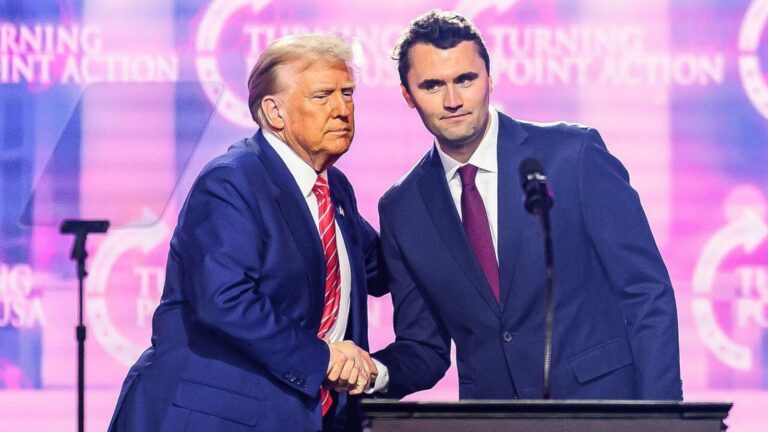While it may be an exaggeration to say Charlie Kirk won the presidential race for Donald Trump, Kirk had a bigger effect on the November 2024 election than most people realize. His organization, Turning Point USA, has always focused on evangelizing the conservative message on college campuses, where it had rarely been heard. As one Journal headline pointed out, “Young Voters Helped Fuel Trump’s Win.”
In the 2018 and 2020 elections, Republicans got crushed among younger voters. Democratic support among this age group was the highest it had been in decades. The trend continued in 2022. But a review of 2024 exit polls tells a different story.
Mr. Trump improved dramatically among younger voters in six of the seven critical battleground states, particularly among college-age voters. His surprising double-digit gains among younger voters in Michigan, Pennsylvania and Wisconsin gave him razor-thin victories in these crucial states.
In addition, internal polling data from the Trump campaign and public polling data reveal that college-age voters increasingly describe themselves as conservative. This is a significant change for the party of Lincoln, which ignored the youngest voters for decades on the mistaken assumption that they wouldn’t start moving right until they start paying taxes.
Kirk understood that Generation Z, the largest and most diverse American generation in history, has become an electoral force. He also knew that Gen Z’s main source for political news is an unrelenting flow of left-leaning social-media content—almost all of it user-generated.
This has resulted in an additional problem for conservatives. Previous generations of young voters were rarely seekers of current news, and often their personal political ideologies didn’t congeal until they were in their early 20s. The youth of today, on the other hand, begin receiving politically related messages during their teens. They aren’t necessarily seeking political news but nevertheless receive a tremendous amount, most of it left-leaning. The result? Their ideologies begin taking shape at younger ages.
To confirm this, my firm, BrabenderCox, recently ran a large-scale advertising test. We sent a political ad featuring a fictional candidate for Congress to 1,000 Gen Z participants. Half the sample received an ad with the candidate identified as a Republican at the end. The other half received the same ad but the candidate’s logo at the end identified him as a Democrat. Overwhelmingly the fictional Democrat was rated higher than the Republican. This confirmed a systemic brand-image problem among younger voters regarding the GOP—and by extension conservatism.
In another Gen Z study we asked: “Do you feel comfortable sharing your political ideology and your political beliefs with your closest friends?” Among self-identified liberals, 68% responded yes, while only 39% of conservatives did. When Kirk began arriving on campus, it gave conservative students a voice—as well as the courage to stand up for their values. It’s possible that Kirk’s assassination will send campus conservatives into hiding. But I believe it will have the opposite effect.
It will be hard to forget the horror of last week. But we should also never forget Charlie Kirk’s effect on America’s future, and his role in advancing President Trump’s conservative agenda for the nation.
Mr. Brabender was a media consultant for the Trump 2024 campaign.
All Access.
One Subscription.
Get 360° coverage—from daily headlines
to 100 year archives.
E-Paper
Full Archives
Full Access to
HT App & Website
Games
Already subscribed? Login







